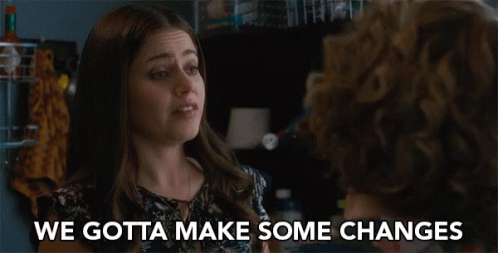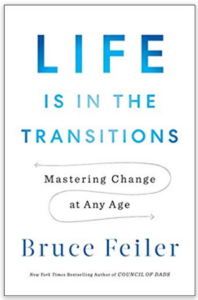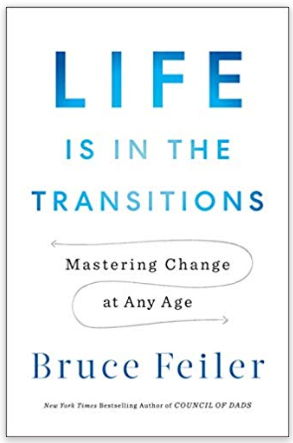Transitions and Changes in Your Life
By Dr. Shannon Kolakowski

“Being in transition is a wonderful opportunity for growth. Take a look at the parts of yourself and your life that you most value”
~ Dr. Shannon Kolakowski
Major life transitions — moving to a new city, becoming a parent, retirement — can be an exciting and invigorating part of life. Yet transitions, even happy ones, can also be stressful and bring up mixed feelings.
Heidi always knew she would move to a new city after college. She wanted to live somewhere new and pursue her career in a large city. But her first few weeks after the move were much more difficult than she anticipated. Similarly, Jane found that after months of trying to get pregnant, she felt suddenly anxious and unprepared to be a parent when she found out she was expecting. And Mark, recently retired, was looking forward to improving his golf game and spending time with his wife. He was caught off guard, however, by the strong feelings of loss he felt related to his career-ending.
The best way to prepare for major transitions is to take some time for self-reflection. Use the following guide to help you to embrace change and make the most of your new role:
1. Recognize that transitions are hard because they can shake your sense of identity.
We naturally define ourselves in part by our surroundings. When these surrounds change, it can be disorienting. Getting married changes your identity from a single person to a partner. Having a child changes your sense of identity from wife or daughter to now include being a mother. A new job changes your identity or role at work. Carrie, for example, was delighted to have been giving a promotion at her company. Her new position had more responsibility, which she liked, but as a manager she no longer had the peer team she was used to working with. She missed her former colleagues and felt overwhelmed. She worried, Am I really equipped for this job? Maybe I was better off before. It took some time for her to re-build her sense of identity in her new role. As she became more comfortable in her new duties and with new colleagues, her work identity was reestablished.
2. Being in transition is a wonderful opportunity for growth. Take a look at the parts of yourself and your life that you most value– how can you bring those parts of yourself into your new role? Next, look at the areas of yourself that you’d like to make changes to. Perhaps you’ve been neglectful of some important area of your life. Transitions are an opportunity to begin practicing new habits and ways of interacting with others. For example, when Tracy got married to Heath, she used the wedding as a time to reflect on what kind of a partner she wanted to be and how she could work to make her marriage strong.
2. Set short time-limits for decisions.
If you do not have a time-limit for when you must make a decision and take action then you can just keep turning your thoughts around and around and view them from all angles in your mind for a very long time. So learn to become better at making decisions and to spring into action by setting deadlines in your daily life. No matter if it’s a small or bigger decision.
For more about this subject, look inside:

Life Is in the Transitions: Mastering Change at Any Age
by Nicholas Carr
3. Remind yourself why you chose to make the change.
In the midst of feeling a little lost during a transition, it can be easy to regret your decision. Why did I break up with Dennis? I’m lonely and it’s hard to find someone new. When doubt creeps in, review the reasons you made your decision: I broke up with Dennis because he didn’t treat me very well and I wasn’t happy in our relationship. I knew I didn’t want to be with him long term, and wouldn’t be able to move on while I was involved still with him. When you see the big picture, it helps you move from feeling overwhelmed to understanding that this is a temporary adjustment, and while it’s difficult now, you are willing to go through some uncertainty and discomfort for the long term gain.
How I Dug Myself Out of the Millennial Mental Health Decline By David Ly Khim
4. Recall other times in your life when you’ve successfully dealt with transitions.
What helped you get through that period in your life? Looking back, how do you feel about the past decisions you’ve made? What were you proud of, and what would you have done differently? Reflecting on your past can help you to make good decisions as you move forward.
5. When you’re in transition, it’s easy to become overly focused on yourself.
One way to shift your focus is to look at others who may need your help. If you’re at work, it may be a coworker who you notice is having a bad day. If you’re in a prenatal yoga class, reach out to another mom-to-be that seems like she is having a hard time. Making an effort to support others helps you remember that everyone struggles at times, and that human connection can be a powerful aid in helping get through it.
6. Part of what helps you feel secure in transition is having a support system.
Make an effort to stay connected; keep in touch with your family, call up an old friend who lives in the area you just moved to, volunteer or get involved in an organization, ask a new co-worked to join you for lunch. Find people who you can really talk to; whether it’s a trusted friend or close family member, being able to share how you’re really feeling can be a tremendous source of strength for you.
As you prepare for your new endeavors, know that the time you’ve taken to reflect and prepare for your next phase of life will help you live more fully and with purpose.
Source: huffpost.com
Shannon Kolakowski, PsyD, is a licensed clinical psychologist in private practice in Seattle, WA. Featured in publications like Redbook, ParentMap, Men’s Health Magazine, Shape and eHarmony, Dr. Kolakowski also maintains a relationship blog on the Huffington Post.
Passionate abouth helping people create the best relationships they can, Dr. Kolakowski seamlessly integrates the latest clinical research with her own personal experience and insight to help clients and readers be their best selves– both within and outside of reltionships. Because Dr. Kolakowski specializes in the treatment of depression and anxiety disorders as well as relationships, she brings an added depth to her understanding of how you can improve all aspects of your life.
About The Author
Shannon Kolakowski, PsyD, is a licensed clinical psychologist in private practice in Seattle, WA. Featured in publications like Redbook, ParentMap, Men’s Health Magazine, Shape and eHarmony, Dr. Kolakowski also maintains a relationship blog on the Huffington Post.
Passionate abouth helping people create the best relationships they can, Dr. Kolakowski seamlessly integrates the latest clinical research with her own personal experience and insight to help clients and readers be their best selves– both within and outside of reltionships. Because Dr. Kolakowski specializes in the treatment of depression and anxiety disorders as well as relationships, she brings an added depth to her understanding of how you can improve all aspects of your life.
Blog Companion Book
What makes us different from other inspirational/motivational online content providers is our monthly
Wave of iNspiration Showcase!
Each month the Showcase features a new Blog, Video, Book, and Quote, highlighting an inspirational, motivational, and educational topic from the industry’s most influential writers, bloggers, authors, and publishers.

Trending throughout iNation…
- Our Real Attention Deficit: The Hunger for Attention By Gregg Levoy
- The Impact of Online AI Girlfriends on Male Loneliness
- Inspiration From the Spouse of a Narcissist By Jamie Haas Powell
- We All Fall…Rise Up! Featuring Recording Artist Lauren Daigle
- How to Bounce Back After Life’s Worst Hardships
- Society is in Turmoil Around the World. It’s Enough to Spook Even the Most Well-adjusted Optimist
- The Impact Individualism Is Having Throughout Today’s Sexually Depressed Generation
- Fixing Social Media’s Destructive Path
- The Inspiration Behind Your iNspiration Nation
- 9 Ways To Become the New You by Being the Real You by Paul Long





